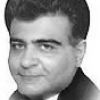Is it so hard to conduct credible polls?
he first three were held under the establishment; were they atoning partially for past rigging?
Pakistan desperately needs credible polls that produce political stability. A regime with a clear public mandate can tackle serious national problems more easily. But public mandates have often been usurped in Pakistan via various rigging tools. Though less blatant than before, these tools still remain potent.
Vote delay has been the most common rigging tool, consuming 30-plus years since 1947, with the establishment planning much of these delays, aided by some opportunist politicians. The 1970 polls were the first credible polls but unluckily suffered from vote results’ rejection as the establishment didn’t transfer power to the winner. The 1977 polls were held by politicians. They were rigged blatantly via vote stuffing, vote miscounting, vote suppression and vote extortion. Other polls generally considered rigged (1985, 1990, 1993, 1997 and 2002) were held under the shadow of the establishment.
The 1970, 1988, 2008 and 2013 polls were more credible. The first three were held under the establishment; were they atoning partially for past rigging? There is a clear pattern though. Polls were manipulated at the peak of its powers, when there was little internal or external pressure to hold credible elections. Credible polls were held only after long bouts of martial laws had ruined the country and there was much internal and external pressure to finally do so. Even then, fair polls were held not due to any institutional strengthening of the electoral process by dictators but due to their decisions to rein in certain elements under pressure.
In contrast, the 2013 polls were more credible due to the institutional measures voluntarily legislated by politicians, especially the clause related to interim regimes. Clearly, it is sections of the establishment, and not politicians, which are chiefly held responsible for manipulating polls in Pakistan. In fact, by introducing the constitutional clause about neutral interim set-ups, politicians have voluntarily eliminated their ability to implement nationwide rigging under any centralised plan. The main potent tool left in the hands of politicians to rig polls is vote buying at constituency level. But this tool is different from all other rigging tools where voters are deprived of practically all choice.
That said, it is also true that opportunist politicians have always provided cover to the powers that be in their quest to eliminate other politicians. Thus, the PPP sided with the establishment against the Awami League in 1971. The PML helped it in its struggles against the PPP in the 1980s and 1990s and the PTI is now being similarly accused of siding with certain elements against the PML(N).
Over time, the tools of rigging have become less blatant and more subtle due to increasing external pressure and internal pressures. So, prolonged vote delays have become less common. Vote stuffing and vote miscounting under a planned strategy nationwide have also become less feasible.
For example, the main tools during the 1990s were ones like vote suppression, vote extortion and vote buying. Even there, the focus was on using less blatant tactics. The focus was not on physically stopping voters of a particular party but on discouraging strong candidates from competing on its platform and voters from voting for it by giving clear signals that the party was unlikely to be allowed to win. These signals included dubious dismissals of the party’s governments and controversial court verdicts. With vote buying and vote extortion, it appeared that certain sections of the establishment were getting strong candidates to switch parties.
There are worrying signs that some quarters could be getting ready to play an active role in the 2018 polls. Many of the emergent patterns seem similar to the subtle tactics used for vote suppression, vote buying and vote extortion in the 1990s. The controversial dismissal and lifetime barring of a Prime Minister, selective accountability and suspicious changing of loyalties by opportunist politicians are perceived as some signs.
The end result may be a hung Parliament. While this may suit the aims of the powers that be, unfortunately, it will also mean a weak government without the authority to deal effectively with festering national problems.
By arrangement with Dawn



















